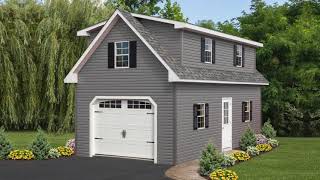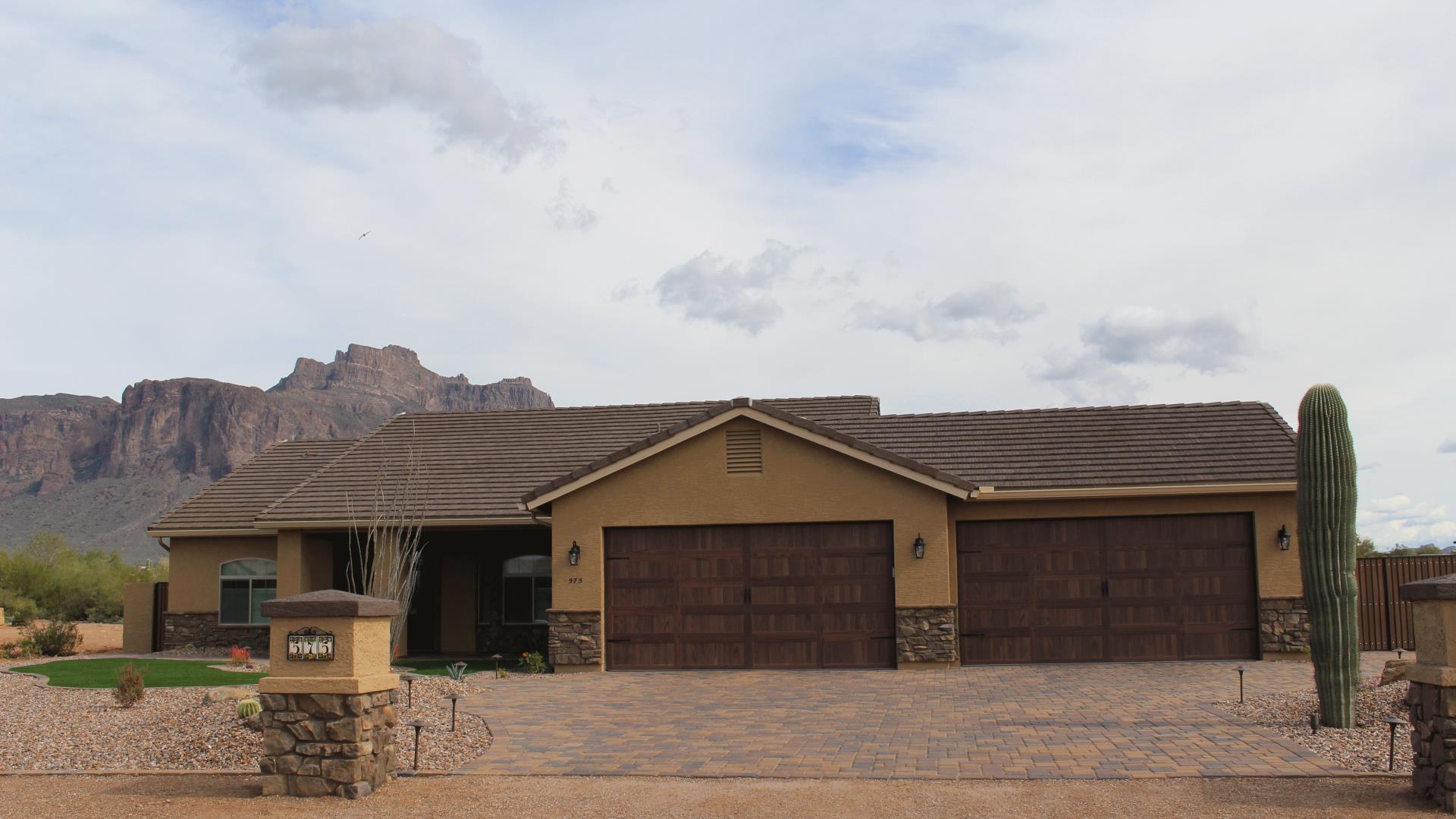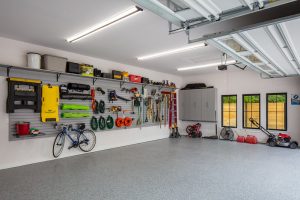
There are many factors that can affect the cost of converting garages into living spaces. Because of the factors mentioned above, the cost to convert a garage into a living space can vary depending on its size and whereabouts. The cost of a garage conversion in San Francisco may be higher than you think. However, if you are located in Colorado or Minnesota, the total cost may be considerably lower.
The cost of a garage convert depends on many factors. It is important to get at least three estimates in order to find out the exact price.
The average garage conversion cost in the United States is $15,017. Prices will vary depending upon where you live. This price includes all of the necessary work needed to make the garage conversion a reality, such new windows, floors, ceilings, and other required maintenance. If you need a kitchen or bathroom, you'll also have to factor in the costs of appliances and plumbing.

It will take more effort than the standard garage remodel to make your new space attractive. You will need to put in lots of windows, level the floor, and finish off with ceiling tiles. In general, laminate and vinyl flooring will cost at least $5 per sq foot, while tile will cost $7 per sq foot, and hardwood flooring will cost $15 per sq foot.
While the cost of a garage conversion can vary widely, the value of a well-done project should be high enough to justify your investment. Even if your goal is to sell your house soon, a garage conversion can increase your home's resale price. A garage can be an excellent investment to generate rental income. A garage with a good finish can double as an extra bedroom for guests or a playroom for children. It can also be used for a home office, home office, or a place to store your belongings.
Apart from the cost to convert your garage, you should also consider adding an HVAC system and insulation to your home. You may need to apply for a building permit depending upon where you live. After you have the permits you can begin construction.
The cost of a garage convert varies depending on the location, features included, materials used and whether the work was done by you or someone else. Your new living space will have a significant impact on the value of your home. This includes factors such as the real estate market in your area. Some municipalities prohibit garage conversions.

The best way to get an estimate on the cost of garage conversions is to speak with a local contractor. The average cost of a two-car garage remodel is around $86 per square foot, and a one-car garage is about 240 square feet.
FAQ
What is the difference of a remodel and renovation?
A remodel is major renovation to a room, or a portion of a rooms. A renovation is a minor alteration to a space or part of a place. A bathroom remodel can be a large project while an addition to a sink faucet can be a small project.
A remodel involves replacing an entire room or part of a whole room. A renovation is only changing something about a room or a part. Kitchen remodels can include changing countertops, sinks, appliances and lighting. An update to a kitchen could involve painting the walls or installing a new light fixture.
Is $30000 too much for a kitchen redesign?
The cost of a kitchen remodel can vary from $15000 to $35000, depending on the amount you spend. Expect to spend over $20,000. For a complete kitchen renovation. You can get a complete kitchen overhaul for as little as $3000 if you just want to replace the countertops or update your appliances.
An average cost for a complete renovation is between $12,000-$25,000. But there are ways to save money without compromising quality. You can replace an existing sink with a new one for around $1000. You can also purchase used appliances at half of the cost of new.
Kitchen renovations take longer than other types of projects, so plan accordingly. You don't want to start working in your kitchen only to realize halfway through that you're going to run out of time before completing the job.
The best thing is to get going early. Begin by looking at all options and getting estimates from multiple contractors. Then narrow down your choices based on price, quality, and availability.
Once you have identified potential contractors, request estimates and compare their prices. The best bid may not be the most affordable. It's important to find someone with similar work experience who will provide a detailed estimate.
Be sure to take into account all additional costs when you calculate the final cost. These extras could include labor and material costs, permits, or other fees. Be realistic about the amount you can afford, and stick to your budget.
Don't be afraid to tell the contractor what you think about any of the quotes. Tell the contractor why you don't like the initial quote and offer another chance. Do not let your pride stop you from saving money.
What are the largest expenses when remodeling a kitchen
A few key costs should be considered when planning a kitchen remodeling project. These include demolition, design fees, permits, materials, contractors, etc. These costs seem small when you look at them individually. They quickly grow when added together.
Demolition is likely to be the most expensive. This includes the removal of old cabinets, countertops, flooring, and appliances. The drywall and insulation must then be removed. You will then need to replace them with new items.
Next, hire an architect who will draw plans for the space. The permits will be required to ensure the project complies with building codes. The final step is to find someone to carry out the actual construction.
Finally, after the job is completed, you must pay the contractor. All told, you could spend anywhere between $20,000 and $50,000 depending on how big the job is. You should get estimates from multiple contractors before you hire one.
Plan ahead to cut down on some of these costs. You might be able negotiate better materials prices or skip some work. You will be able save time and money if you understand what needs to done.
People often try to install their cabinets themselves. Because they don't have professional installation fees, this is a way to save money. They often spend more trying to install cabinets themselves. The time it takes to complete a job can be completed by professionals in half the time.
You can save money by buying unfinished materials. Before purchasing pre-finished materials like cabinets, you must wait until all the pieces are assembled. By buying unfinished materials, you can start using them right away. You can always make a change if things don't go as you planned.
Sometimes, however, it's not worth all the effort. Planning is the best way save money on home improvement projects.
What would it cost for a home to be gutted versus what it would cost to build one?
Gutting a home removes everything inside a building, including walls, floors, ceilings, plumbing, electrical wiring, appliances, fixtures, etc. It's often necessary when you're moving to a new house and want to make changes before you move in. It is often very costly to gut a home because of all the work involved. Depending on your job, the average cost to gut a home can run from $10,000 to $20,000.
Building a home is where a builder builds a house frame by frame, then adds walls, flooring, roofing, windows, doors, cabinets, countertops, bathrooms, etc. This is typically done after purchasing lots and lots of lands. Building a home is normally much less expensive than gutting, costing around $15,000-$30,000.
It all comes down to what you want to do in the space. If you want to gut a home, you'll probably need to spend more because you'll be starting over. If you're building your home, however, you don't have to tear everything down and start over. You can design it yourself, rather than waiting for someone else.
How can you tell if your house needs renovations or a remodel?
First, look at how recent your home has been renovated. A renovation may be a good idea if there have been no updates for several years. You might also consider a remodel if your home is brand new.
The second thing you should check is whether your home is in good condition. A renovation may be necessary if your home has holes in its drywall, cracked wallpaper, or missing tiles. If your home is in good condition, it might be worth considering a remodel.
You should also consider the overall condition of your house. Is it structurally sound? Do the rooms look good? Are the floors clean? These are essential questions to consider when choosing the type of remodeling you want.
How much does it cost to gut and renovate a kitchen completely?
You might be wondering how much it would cost to renovate your home.
The average cost of a kitchen remodel between $10,000 and $15,000. You can still save money on your kitchen remodel and make it look better.
Preparing ahead can help you cut down on your costs. This includes choosing the right design style and color palette to suit your budget and lifestyle.
Another way to cut costs is to make sure that you hire an experienced contractor. Professional tradesmen are familiar with every step of construction, so they won't waste their time trying to figure it out.
It would be best to consider whether you want to replace or keep your existing appliances. Remodeling a kitchen can add thousands of pounds to its total cost.
Additionally, you may decide to purchase used appliances rather than new ones. Because you don't need to pay for installation, buying used appliances can help you save some money.
Finally, you can save money by shopping around for materials and fixtures. Special events like Cyber Monday and Black Friday often offer discounts at many stores.
Statistics
- 57%Low-end average cost: $26,214Additional home value: $18,927Return on investment: (rocketmortgage.com)
- Attic or basement 10 – 15% (rocketmortgage.com)
- 55%Universal average cost: $38,813Additional home value: $22,475Return on investment: 58%Mid-range average cost: $24,424Additional home value: $14,671Return on investment: (rocketmortgage.com)
- bathroom5%Siding3 – 5%Windows3 – 4%Patio or backyard2 – (rocketmortgage.com)
- Windows 3 – 4% Patio or backyard 2 – 5% (rocketmortgage.com)
External Links
How To
How can you budget for a bathroom?
It is important to be able to afford any remodeling project. You can't expect to be able pay for it later, so make sure you have enough money.
It is important to plan carefully and understand the costs involved in a bathroom renovation. Bathroom remodeling projects can be quite costly.
Labor is the largest expense. The size of the job, as well as whether the contractor is a professional or a DIYer, will impact the labor costs. Because of their expertise and experience, professionals usually charge more than DIYers for an hour.
Materials are another major expense. Prices per square foot can vary depending upon the type of material.
The cost of energy is also an important factor. This includes both your electricity and gas bills. Peak demand will cause energy prices to rise.
You should also consider the time involved in completing the project. Bathroom renovations generally require a lot of time and patience. While some projects may take several weeks to complete, others may take months.
Other than these three main categories, smaller items such paint, wallpaper, and flooring can add to the project’s overall cost.
To help you determine the best way to approach your bathroom remodeling project, here are some tips to keep in mind:
-
Determine your Budget - Before you begin any remodeling project, it is important to determine what you can afford. It doesn't really matter if it is something you can afford. It's important to create a realistic budget that allows you to see exactly where your financial situation is.
-
Plan Ahead - If possible, try to schedule your bathroom remodel for the off-season. You will be able to save money on cooling and heating costs by scheduling your bathroom remodel during the winter months, which typically has lower energy consumption rates. Even better, consider scheduling your remodel during the night when less people are using the restroom.
-
Shopping around - Once you've established your budget, start looking at potential vendors. There are many options available, including local businesses and online retailers. You may also have friends or family members that might be willing to help you with the project.
-
Choose An Estimator - Once you have identified all your potential vendors, you should contact each individually to get estimates. You want to make sure you get multiple quotes to ensure you are getting competitive pricing.
-
Get Multiple Estimates. - After getting your initial estimates you can compare them against each another to determine which vendor offers the best price. Once you have found the right vendor, you can ask them to give you a written estimate.
-
You should include all costs in your estimate. Include details about fees, taxes and permits that may be required in your area.
-
Do not overlook the small details - When planning your bathroom remodel, it is important to pay attention to the smallest details. For example, do you need a new toilet? Is there sufficient space to mount a shower curtain rod on the wall? These modifications can easily increase your project's cost.
-
Consider insurance - Your bathroom remodel will have a significant impact on your insurance coverage. Don't forget to check your insurance company if you haven't already. You may end up with additional costs.
-
Hire a professional - After your bathroom remodel is completed, hire a professional installer to finish the job. You may be able handle the job, but it is more efficient to hire a professional to do the job properly.